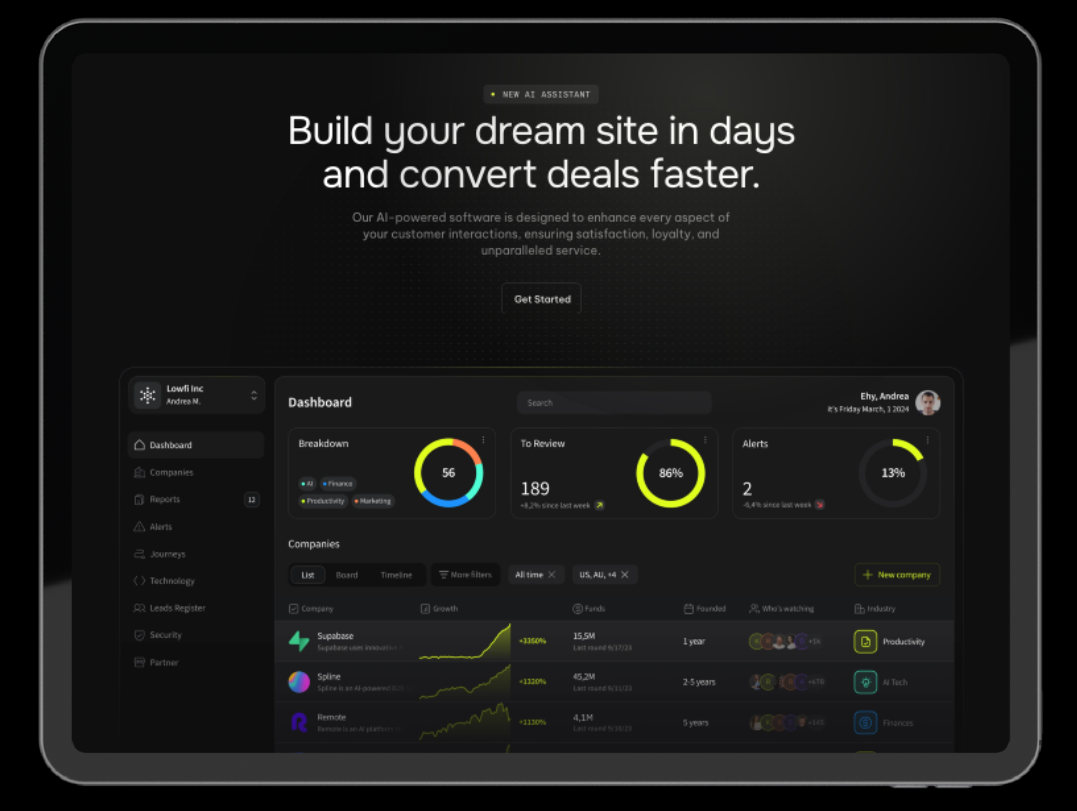Grow Ur Marketing
The premier marketing agency for schools and small businesses devoted to creating unforgettable experiences for you and your customers!
Get $500 of Free Ad Credit on Us
Take your Business to the next level!
Our approach to paid ads, web development, and CRM consistently has seen clients' triple their returns. Are you ready to grow?
Paid Ads
Enhance your brand's visibility and engagement through our impactful Facebook and Google Ads services, delivering meaningful results.
Automation
Experience streamlined operations with seamlessly integrating automation and CRM management for unparalleled efficiency.
Website Development
Revolutionize your online presence with Web Development and SEO services, creating websites that captivate and dominate search engine rankings.
View our Case Studies
Grow Ur Marketing
Our expertise enables you to boost profit margins. Come join our community and take your business to a new level.
Unlock The
All In One Package
Combining social media management, content creation, analytics, client reporting, CRM, and paid ads, ensuring a comprehensive and streamlined solution to elevate your digital marketing strategy.
Grow Ur Marketing
What we're about!
Redefine the conventional ways of marketing, backed by a track record of delivering not just results, but measurable impact, our agency infuses your brand innovation and success. Our nimble adaptability and unwavering commitment to exceptional customer support ensure a truly exceptional journey towards brand elevation.

A better way to engage your customers
Save Time
Choose us for time-saving marketing solutions and free up your schedule.
Our Priority
Our relationship with our clients is our highest priority. We want you to feel like you have complete control over your web presence
Grow Ur Business
Watch your profits and efficiency soar. You’ll expand faster than you ever thought possible.
Building Lasting
Brand Relationships
We're dedicated to building lasting relationships and making it our promise to help you grow and reach your goals.
Why Grow Ur Marketing?
Affordable Pricing
High-quality services at affordable prices, ensuring accessibility for businesses of all sizes. With a transparent pricing model, we prioritize value and aim to build lasting partnerships with our clients.
Our
Testimonials
G.U.M. really saved the day- when my business was just starting out. I had worked with people in the past and was so disappointed with the quality. G.U.M. understood the style and needs of my business immediately and knew exactly how to execute. They didn't overpromise - they delivered. It's super easy to collaborate with them too - we really worked to get the ideal result and I wasn't settling on quality. He always answers questions and makes edits extremely fast.
Michelle S.
I couldn't be happier with the results. G.U.M.'s expertise in the field is truly impressive, and it's clear that they are passionate. In the past I had difficulty collaborating with other companies. What sets them apart from the competition, is their dedication to understanding his clients' needs and goals. They took the time to listen to our business objectives and tailored a strategy that not only met but exceeded our expectations. The results speak for themselves our online presence has grown significantly.
Alex M.
Highly Recommended!! We have been working with Aedan on our SEO and paid advertising for a short time and we are already seeing some great results. Aedan is very professional, knowledgeable, and responsive. He has offered several solid marketing directions going forward and great ideas for a better customer experience. I see an exciting partnership going forward with our projects
John S.
Was an absolute pleasure working with Aedan and the Grow Ur Marketing team! He made the web design and social media promotion process seamless. He was always available to answer questions and work us through any hurdles. His rates are great and his final product was even better. Would recommend him a thousand times if I could!
Frank M.
Trends & Insights




























